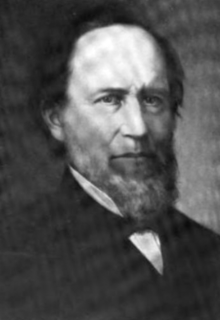Loading AI tools
American judge From Wikipedia, the free encyclopedia
Matthew Birchard (January 19, 1804 – June 16, 1876) was a judge in the U.S. State of Ohio who was an Ohio Supreme Court Judge 1842–1849.
Matthew Birchard | |
|---|---|
 | |
| 3rd Solicitor of the United States Treasury | |
| In office January 16, 1840 – March 17, 1841 | |
| Preceded by | Henry D. Gilpin |
| Succeeded by | Charles B. Penrose |
| Justice of the Ohio Supreme Court | |
| In office February 15, 1842 – February 22, 1849 | |
| Preceded by | Peter Hitchcock |
| Succeeded by | William B. Caldwell |
| Personal details | |
| Born | January 19, 1804 Becket, Massachusetts |
| Died | June 16, 1876 (aged 72) Warren, Ohio |
| Resting place | Oakwood Cemetery |
| Political party | Democratic |
| Spouse | Jane E. Weaver |
| Children | two |
Matthew Birchard was born in Becket, Massachusetts, and came to Trumbull County, Ohio, near Warren at age eight.[1] He was admitted to the bar in 1828, and formed a partnership with future governor David Tod,[1] and six years later was elected Common Pleas Judge.[2]
Birchard accepted an appointment with the Federal Government for a time from his friend Andrew Jackson, first as Solicitor for the United States General Land Office, and then to succeed Henry D. Gilpin as Solicitor of the United States Treasury.[1][3] He returned to Warren in 1841. He was elected from Trumbull County by the Ohio General Assembly as a judge of the Ohio Supreme Court for a seven-year term, and served 1842–1849.[4]
He was elected to the Ohio House of Representatives in 1853 and served in the 51st General Assembly, 1854–1855.[5] He lost election to Congress in 1856 as the Democratic nominee in the 20th district.[6]
In 1867, Birchard purchased the newspaper Warren Constitution and ran it with his son until his death in 1876 in Warren.[1] He is buried at Oakwood Cemetery.[7]
One author appraised Birchard thus: "His written opinions are characterized by felicity of expression and perspicuity of thought. His pertinacity has been bluntly denominated stubbornness."[2] Another opined : "The opinions of Judge Birchard were characterized by fluency of expression and clearness of logic. He was known as a man of strong convictions, great will of power, and possessed pertinacity of the sort that causes one juror out of twelve to dissent from the opinion of colleagues."[4] While a third stated: "...his opinions show him to have been a man of learning and research, with a strong sense of justice."[1]
Birchard married Jane E. Weaver of Bella Vista, Virginia in 1841 and raised two children.[7]
Seamless Wikipedia browsing. On steroids.
Every time you click a link to Wikipedia, Wiktionary or Wikiquote in your browser's search results, it will show the modern Wikiwand interface.
Wikiwand extension is a five stars, simple, with minimum permission required to keep your browsing private, safe and transparent.